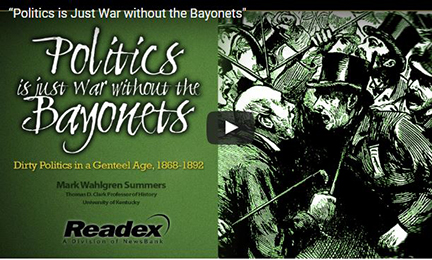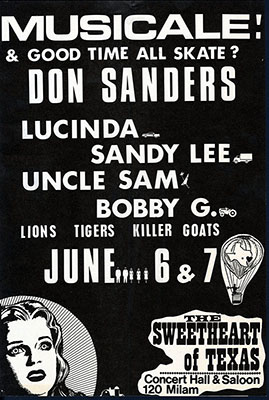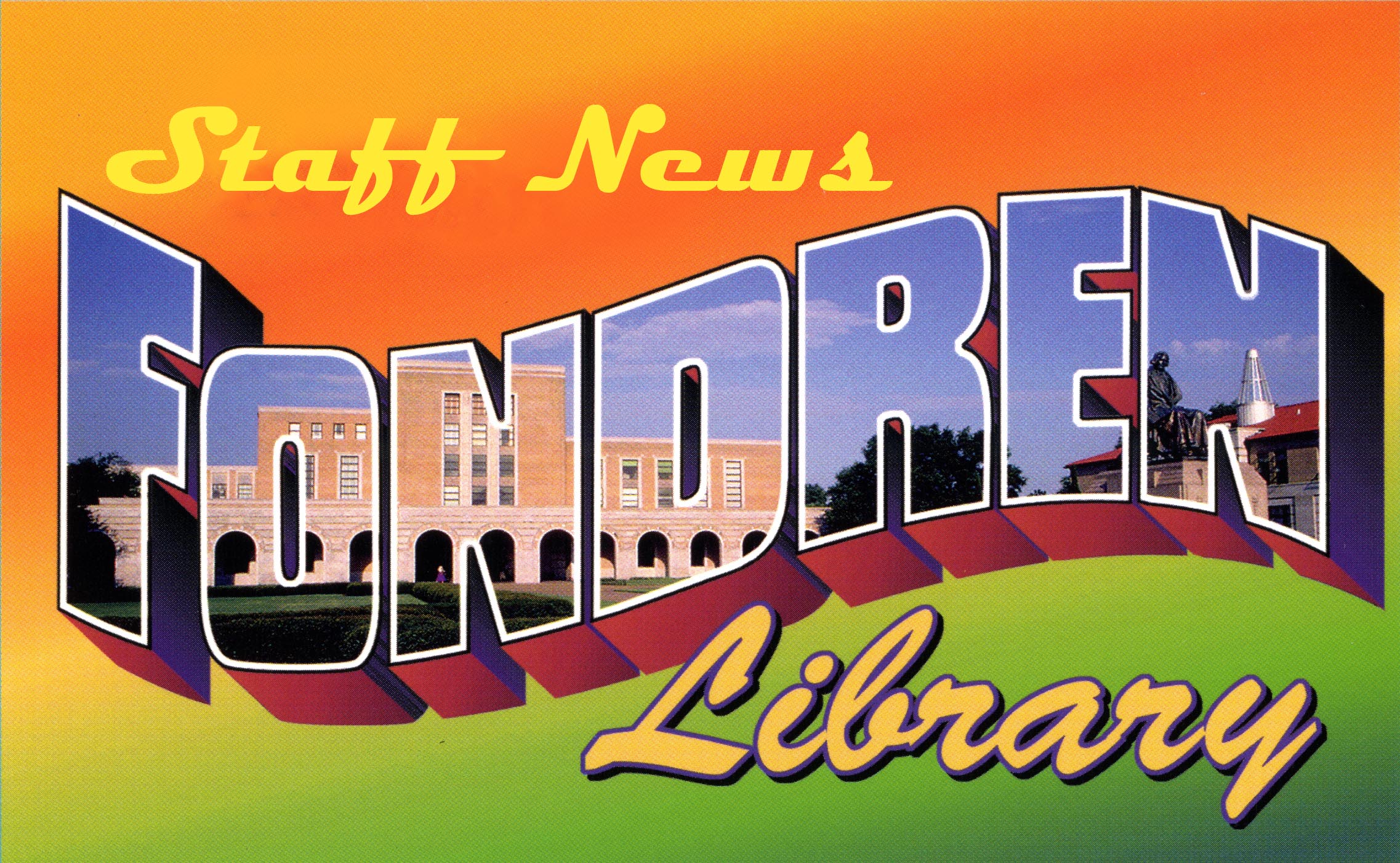As part of Keeping Current, staff members share the latest library developments gained from professional meetings in the previous year.
Linda Spiro
Among the benefits of attending an ALA Conference are specialized talks associated with new vendor tools. Given the highly controversial Presidential election this year, of particular interest at ALA Annual in July in Orlando was a Readex-sponsored talk given by Professor Mark Wahlgren Summers entitled “Politics is just War without the Bayonets: Dirty Politics in a Genteel Age, 1868,1892.” The talk was recorded, so you can see it at http://www.readex.com/videos/politics-just-war-without-bayonets-dirty-politics-genteel-age-1868-1892.

A highly energetic speaker, Dr. Summers called elections the most popular sport at the end of the 19th century with 70 to 90 percent of the electorate showing up to vote. The whole town turned out when candidates came through town and spoke for two or three hours at the fairgrounds where parties hosted barbeques. Campaigns were virulent, violent, nasty and dirty. A good day was when only five people were killed in a particular town. A nonpartisan press did not exist. There were two sets of papers for every town, one Democratic and one Republican with completely different headlines after an election. Ballot boxes were burned and dead people voted. The South, with its one party (Democrat) system was particularly violent with potential black voters and fair-minded officials killed and threats made against white men who planned to vote Republican. The British and Chinese were accused of meddling in our elections. Third party candidates were bankrolled by the Democrats or Republicans to draw voters from the other side. The main qualification for being a Presidential candidate was that you didn’t want to run.
Although many are disgusted with the most recent election contest, let’s hope the outcome remains more peaceful and above board than those of the late 19th century.
Shannon Kipphut-Smith
In Spring 2016, I attended two conferences that had sessions on supporting researcher compliance with new funder public access policies—an area that Digital Scholarship Services is actively engaged. At the American Chemical Society Annual Meeting’s CINF symposium “Driving Change: Impact of Funders on the Research Data & Publications Landscape,” I presented (with colleagues from Utah State University) the results of a study conducted to better understand how academic libraries are leveraging existing services and resources when addressing the new public access policies (our slides can be found at http://hdl.handle.net/1911/88651). Other presentations included speakers from the National Institutes of Health and Department of Energy, publishers, initiatives such as SHARE, and services such as Figshare. The conversation about public access support continued a few weeks later at the SPARC MORE Conference. Participants heard from a representative at the Bill & Melinda Gates Foundation about their unique open access policy, and members of the Coalition of Open Access Policy Institutions (COAPI)–Fondren is a member–discussed ways to leverage institutional OA policies to support public access compliance.
Norie Guthrie
In October, I presented at the Houston History Conference’s “The History of Houston’s Musical Soul”; the link can be found at https://www.houstonhistoryalliance.org/houston-history-conference/2016-houston-history-conference/ As part of a panel covering music archives in Houston, I talked about the Houston Folk Music Archive’s collections and our current and future plans. Not only was the conference incredibly interesting, it was a great way to reach out to the Houston community. An audience member from the Houston Folklore and Music Society contacted us after the conference and donated the society’s newsletters dating back to the 1960s. You can follow the Houston Folk Music Archive on Facebook: https://www.facebook.com/houstonfolkmusicarchive/

Mary Brower
The Texas chapter of the Music Library Association held their fall meeting October 7-8 at the Richardson Library of Hardin-Simmons University in Abilene. A total of eight presentations were given during the two half-days. One of the most interesting was University of Houston Music Librarian Stephanie Lewin-Lane’s presentation “Creating a Beta-Space in an Academic Music Library.” A Beta-space is similar to a Makerspace, but with less emphasis on technology and more emphasis on creativity and inspiration. She repurposed an office into a group study room in the music library that is open to all UH students, but is specifically geared to the performing arts students. It can also be used for skype/phone interviews, viewing webinars and MOOCs, tutoring sessions, and small information literacy classes and workshops hosted by the music library. Previously there was no similar space anywhere in the building. The music library staff repainted the room in blues, greens and purples (associated with stimulating creativity in color psychology), and added stimulating art and comfortable furniture. They also outfitted it with a USB enabled keyboard and microphone for recording; TV and speakers; a laptop equipped with recording, arranging and mixing software, a large whiteboard, and a resource center with relevant handouts and books to check out. Since the room opened in September 2016, there have been 20 reservations–79 people total, including four nonmusic majors.
For further information about the Beta-Space and how it is used: http://guides.lib.uh.edu/music/betaspace
For more photos of the room: https://www.facebook.com/uhlibraries/photos/?tab=album&album_id=10155137584224838


